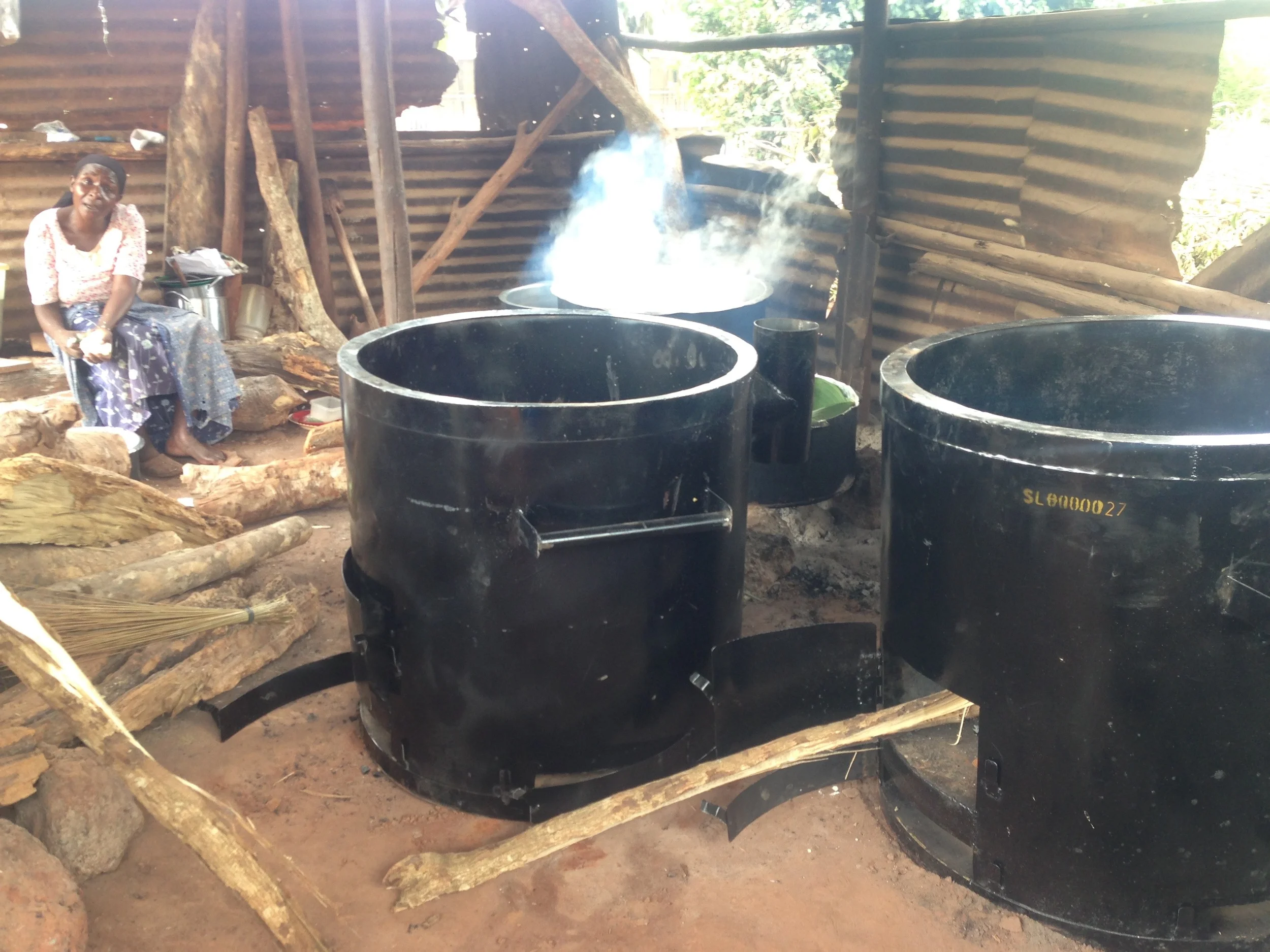As part of SImoshi's carbon finance programme, we provide free annual maintenance to all the institutional improved cook stoves (IICS) population, every year, for up to seven years.
Some of the installed IICS have been in operation for over six months. As part of our programme, we provide trainning to the school kitchen staff on how best to operate the IICS.
Nevertheless, we still find some challenges as the staff continue to overfill the saucepans. When the contents boil, the salt corrodes the metal as it spills outside.
We have started with our maintenance activities, and the most common maintenance events are (i) replacing the outer steel jacket and (ii) replacing the bricks in the combustion chamber.
Steel jacket gets corroded because the saucepans are over filled.
Replacing the IICS outer steel jacket as part of our free annual maintenance.
Giving the final paint touches, and the IICS is now back to as new condition!

































































